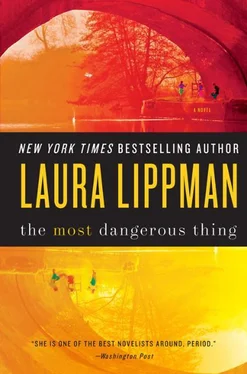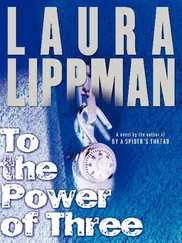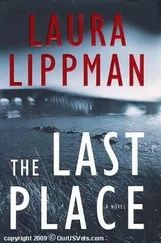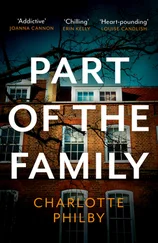“I’m pretty sure that was before my time,” Gwen says, then blushes. She was trying to reference the magazine, not the issue of Tess Monaghan’s looks, which merit the not-quite-compliment of handsome. Strong features, hair pulled back in a ponytail, a fresh-scrubbed face. “We still do the singles issue-it sells very well, and we make a bucketload on the advertising-but I’ve tried to add some serious journalism to the mix.”
“I’ve noticed. That’s why I don’t want to talk to you about Gordon Halloran in any kind of professional capacity. Besides, there’s not much I can tell you. I’ve spoken to my client. My client prefers to remain anonymous.”
Shit. That doesn’t assuage Gwen’s conscience in the least.
“Could I have any nonidentifying information about your client?”
“Such as?”
“Age, gender, place of residence. Race.” If the client isn’t African American, there’s little chance that one of Chicken George’s relatives has hired Tess Monaghan.
“I can ask. But my client is pretty paranoid. And unnerved by Gordon Halloran’s death. As am I, since you told me it might be a suicide. The news reports last month didn’t say that. At my discretion, I haven’t passed that information along to my client yet, but I will. It-” She pauses. “It complicates things for us, and I’m afraid it will make my client, who is a very nice person, feel quite bad. Are you sure?”
“It’s unclear,” Gwen says truthfully, not wanting to admit that she guilted the PI into this meeting. “It will probably always be unclear. He had been drinking after several months of sobriety. He drove into the concrete barrier at the foot of I-70, where it dead-ends into the park-and-ride. He was speeding, but he was always a reckless, fearless person. He could have been playing some silly game, misjudged the end of the highway.”
Tess Monaghan shifted the baby on her shoulder. Annabelle had been tiny, too, for her age. Still was. But Gwen had forgotten how alien young babies look, with their comically smushed faces and toothless smiles.
The detective says: “But he was a regular at AA.”
“Was. He didn’t go to the meeting that night.”
“Right.”
“Right-wait, how do you know that? I said only that he was sober.”
“One of my employees was attending those meetings.”
“That’s horrible .” Heedless of the lie she had told to gain this audience, Gwen is genuinely appalled. “The whole point of twelve-step programs is to provide people with a safe place to unburden their hearts. It’s a-desecration to send a spy there.”
Tess surprises her by nodding. “I wasn’t wild about it. I’m not wild about a lot of the things I do. But my client-well, my client is an honorable person who has a right to set the record straight on a matter that goes to the heart of my client’s very being. There was a possibility that Gordon Halloran was someone who could help do that. I sent someone into the meeting to see if he ever spoke about certain events in his past, if he contradicted what my client was telling me.”
“And-?” Gwen is shocked at how nervous she feels and hopes that Tess Monaghan can’t tell. It’s like driving down the road, glimpsing a cop in one’s rearview mirror and starting to shake despite being within the speed limit. No, it’s not like that, because Gwen is not without blame.
“He never spoke at all, not during the meetings. He was a little more open during smoke breaks.” Tess Monaghan laughs. “My poor partner, who hates cigarettes, took to smoking clove cigarettes and now has a bit of a penchant for them. Still, he talked only of his family, his wife and his daughters, how he was doing this for them.”
“It’s your messages to him that got him kicked out of the house,” Gwen says, eager to shift blame, to make someone else feel as twitchy and uncomfortable as she feels. “Which is probably why he started drinking again. And died.”
Tess Monaghan studies her intently. “Do you believe that? That’s not a rhetorical question.”
“Not exactly,” Gwen admits.
“You were attempting leverage, to guilt me into telling you things I just can’t tell you. I might do the same thing in your position. But please understand, I am working with an attorney-a very high-powered one, not my usual kind of gig. I have to respect the client’s wishes or I’m in violation of the agreement I signed, and this lawyer will come down on me like a ton of bricks if I do that. He’s a prick that way.”
“So why are you in business with him?”
The baby emits a comically large burp, delighting her mother. “The client’s a sweetheart. And the circumstances-I almost wish I could speak of them because it’s darn fascinating.” She laughs again, this time at herself. “Darn! As if this lump in my arm would be shocked by my old vocabulary, but I really have trouble cursing in front of her. Let’s just say my client is that rare person who’s interested in justice.”
Again Gwen is feeling far from comforted.
“Can you tell me anything?”
Tess thinks for a moment. “The client lives quite far away. New Mexico. I’m willing to tell you that one detail so you’ll understand it’s not someone you can find.”
“At what time in his life did Go-Go know this person?”
Tess gazes at the ceiling, absentmindedly places her lips against her daughter’s temple. “I don’t think I’ve ever said that Gordon did know this person. Or that he didn’t. When I finally spoke to Gordon-”
“You spoke to him? His wife thought-”
“I didn’t stop trying to speak to Gordon after he moved out, although I didn’t realize my calls had anything to do with that. And he affirmed what I believed and what my client believes. But now he’s dead and all I have are my notes from that brief conversation, and my notes-they’re not enough.”
“Enough?”
“They’re not proof of anything. I will say this much: I think my client was right in assessing Gordon’s character.”
“Meaning?”
“He’s essentially an honest person and has a hard time carrying secrets. He very much wanted to do the right thing. Look, my investigation is ongoing.” Gwen feels another flush of panic. “That’s why I have to be reserved about it. And any media attention, the barest whiff, would have horrible repercussions. You can’t imagine.”
Gwen can, though.
Tess Monaghan walks her to the door. It’s cool for April, and she cups a hand protectively over the baby’s scalp. “I worry about her immune system because she was a preemie. I make her wear hats to guard from cold, no matter how balmy it is, overdress her. Like all women, I have become my mother.”
Only Gwen hasn’t. Her mother never would have left her, under any pretext, not when she was Annabelle’s age. Her mother waited until Gwen was a teenager before she even dared to stake out a life of her own, through her painting. And by then Tally had so little time left. Would she approve or disapprove of Gwen as a parent? Could Gwen ever have lived up to her example-the well-kept house, the perfect meals? No, she runs a magazine for those who aspire, as she does, to be like her mother-effortlessly stylish, abreast of things. Gwen does a fair imitation of Tally, but it requires mountains of effort. Perhaps her mother put in just as much effort. Perhaps beneath the sweet, serene surface she also roiled with self-imprecations and disappointments. Still, she never let Gwen see that, whereas Gwen already has exposed her much younger daughter to a world of doubt.
Gwen’s thoughts are derailed by the squeal of brakes, a small but undeniable crash: an MTA bus has managed to stop before hitting the van that is blocking the street, but a Toyota Corolla behind the bus hasn’t been as fortunate, plowing into it. And now people are filing out into the street, but only one or two people are peering at the Toyota’s driver, who appears unhurt if dazed. No, most of the people are trying to get on the bus, prying open the doors, while the bus driver shouts at them to stop. Tess Monaghan laughs so hard that her baby daughter wobbles on her shoulder.
Читать дальше
Конец ознакомительного отрывка
Купить книгу












